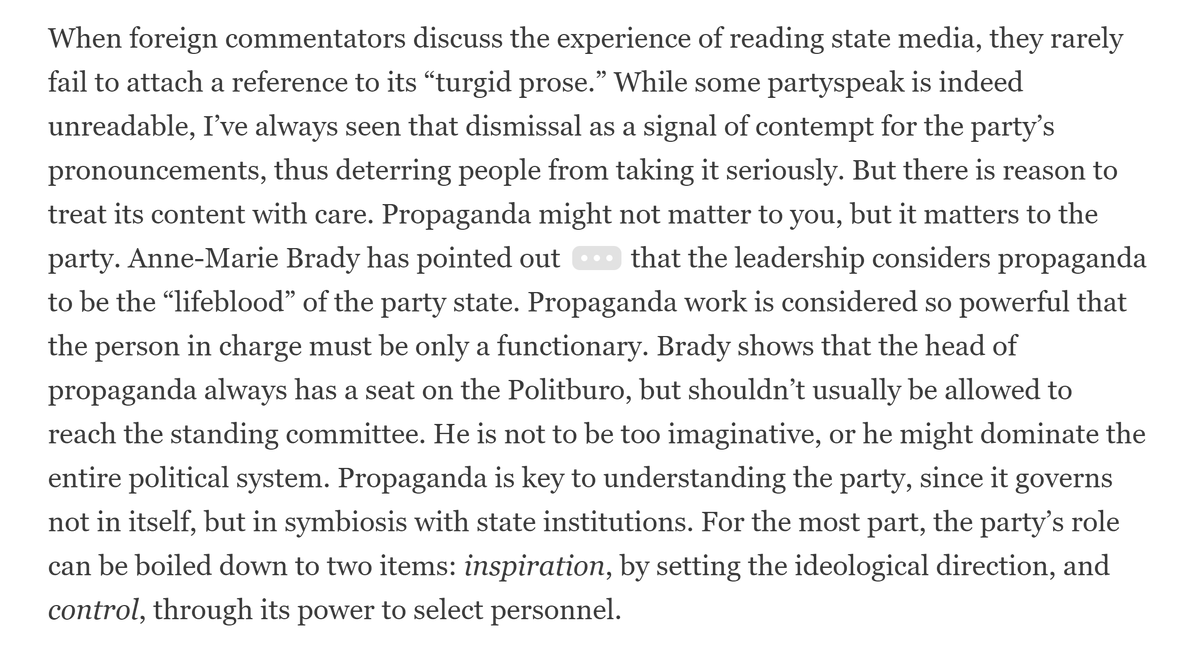If meritocracy is bad because it rids non-meritorious elites of noblesse oblige, I wonder if China's explicit embrace of propaganda is in some ways preferable to the US model in which propaganda is endemic but identifying the propagandists is impolitic. https://danwang.co/2020-letter/
By rendering its propaganda policy overt, China can a) identify its propagandists by name, and b) in some sense tame their output, as shown by the "turgid" prose and the limitations on their party rank, thus treating the power to shape narrative with the respect it deserves.
David Hume makes a similar point in The History of England when he defends the Church of England, and established religions more generally, as being best equipped to reap the advantages of religion (public morality) while avoiding the fanaticism apparent in the American colonies.
The parallel to established religion isn't accidental. China is an integralist state, insofar as it merges church & state / party & civil society / morality & law, in the name of a higher social "order" that advances the common good & resists liberalism. https://twitter.com/hamandcheese/status/1214603979818258435
The way China treats its nationals living abroad is even vaguely integralist, as if they remain under Chinese law by dint of their baptism into the CCP. Pope Pius IX ain't got nothing on Xi–Li. https://foreignpolicy.com/2018/03/29/the-disappeared-china-renditions-kidnapping/

 Read on Twitter
Read on Twitter


